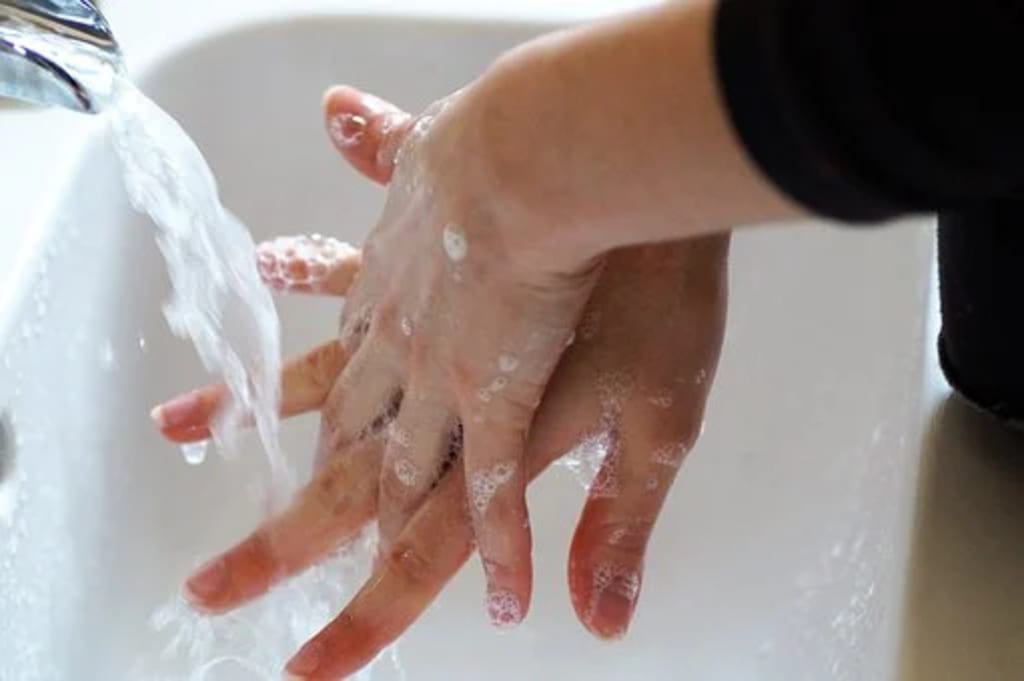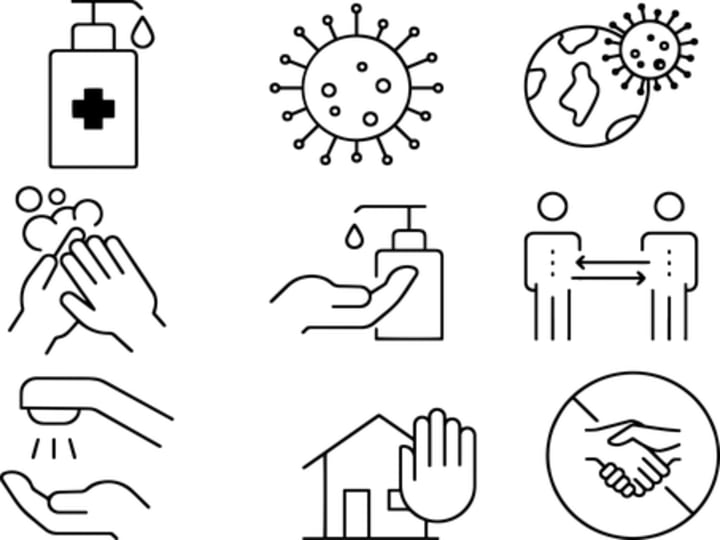7 Precautions To Protect Yourself From Coronavirus
Tips on how you can keep yourself safe during this pandemic.

The total number of people infected with COVID-19 has surpassed 4.9 million. There were similar virus outbreaks in the past. They were the SARS virus in 2003 and the MERS virus in 2012.
The problem with the current virus is it spreads faster. It is present in the droplets produced when an infected person coughs and sneezes. Moreover, the virus can survive on wooden, plastic, and metal surfaces for a prolonged period. One might directly come in contact with the droplets of an infected person or via surface viruses. People infected can remain asymptomatic for around 7-14 days. It increases the chances of spreading exponentially.
The disease's common symptoms include sore throat, fever, cough, fatigue, and loss of taste and smell. Some also have headaches, nausea, vomiting, and diarrhea.
But people with persistent chest pain, shortness of breath, and pneumonia require hospitalization. The health of people with mild symptoms can quickly deteriorate, so doctors need to monitor them too. As a result, across nations, the healthcare systems are stressed. In certain places, people are not getting medical attention and succumb to the infection.

So, every individual has to take preventive measures and adhere to the directions of local health authorities. Here are a few ways to avoid contracting the infection.
1. Stay home:
As a measure to reduce the spread of infection and spruce up medical facilities, many countries are imposing lockdown. The lesser you go out, the lesser is the chance of coming in contact with an infected person. So schools and universities are shut, social gatherings are not allowed, and most companies have recommended work from home options for their employees.
It is advisable to step out, only for buying essential goods and medical needs. These restrictions might be harder for many, but it is effective and reduces the infection transmission rate.
2. Keep things clean
We all know that cleanliness is the key to wellness. In pandemic time, it becomes essential to clean and disinfect.We may not go out often and thus reduce person-to-person transmission.But the virus that we wish to resist can survive in the air and even stay on surfaces for days.
Therefore, one must sanitize high-touch surfaces like door handles, kitchen counters, table surfaces, drawer knobs, toilet seats, light switches, cell phones, remote controls, and handles of appliances like fridge, microwave, etc. One can either use disinfectant sprays or wipes and let the solution wet the surface for a few minutes for maximum germ removal.
3. Wear face masks:
In almost all affected countries, it is compulsory to wear a mask in public. The reason is that the infection spreads through respiratory droplets. And, due to a single cough, around 3000 droplets could come out. Recent studies show that the virus could transmit even when people talk.
Face masks act as a barrier and reduce the amount of virus released while we talk, cough, or sneeze. We have cloth masks, surgical masks, and n95 masks. The n95 mask could filter out particles as small as 0.3 microns. People who are more susceptible to infections like healthcare workers and police persons must wear them. People can go for surgical or homemade masks, depending on the availability.
4. Wash hands regularly
Proper hand washing is the key to break the transmission chain of the virus. We take grocery packages, eatables, lift doorknobs, open cupboards, operate cell phones, etc., with our hands. All these surfaces might have hoards of germs that easily cling to our palms when we touch.
And, when we rub our eyes, nose, or mouth with hands, the virus enters into the body. Soap and water remove the oily outer layer of the virus and stop its infectivity. Moreover, we rinse off the germs in the water. If water is not available, we need to go for alcohol-based hand sanitizers.
5. Cover your coughs and sneezes
Health authorities recommend people wear them at home when you have an infected person under self-isolation. Otherwise, we need not have masks at home. Even when you are not wearing a mask, it becomes essential to cover your mouth while coughing or sneezing.
We have the habit of keeping our palms in front of the mouth as we cough or sneeze. It is wrong, as we are likely to touch various surfaces like door handles, mobile phones, etc. We should use the elbow crook for covering when we do not have a mask or tissue. Also, one should turn away from people while coughing.
6. Maintain physical distance
The respiratory droplets containing viruses could reach up to a distance of six feet when an infected person sneezes or coughs. Therefore, it is safer to maintain a gap of greater than six feet in public.
And, it is the reason why mass gatherings are not allowed, public transport is limited, schools have online learning, etc. One of the ways to contain the spread of the disease is to reduce the number of people coming out in public. It is the responsibility of every person to follow social distancing.
7. Eat healthily and stay fit
So far, we talked about measures that prevent us from getting infected. But it is our immune system that helps us fight the virus, in case we contract it. So, it is essential to eat a well- balanced, healthy diet. Ideally, one-quarter of the meal should be proteins, another quarter should be carbohydrates, and the rest should be vegetables and fruits. Take stock of the items often and reduce the trips to supermarkets. Choose items that have a longer shelf life like canned fruits, vegetables, and fish.
At home, we may not be physically active. So, having a routine exercise time is advisable. We can explore home workout options like planks, squats, pushups, yoga, dance, meditation, etc.
To summarize:
We are in the midst of highly turbulent times of our lives. Rising positive cases, mortality rates, economic instability, etc., might take a good toll on our mental peace. Moreover, long-term work from home, managing children, and a tense atmosphere in shops increase the stress levels.
One should stay connected to distant family members and friends. It is better to check updates on the covid situation once or twice a day. Learning new activities through youtube, taking online courses, etc., is productive and makes you feel a little accomplished. Staying safe, healthy, and motivated can help us tide over this difficult time.





Comments
There are no comments for this story
Be the first to respond and start the conversation.